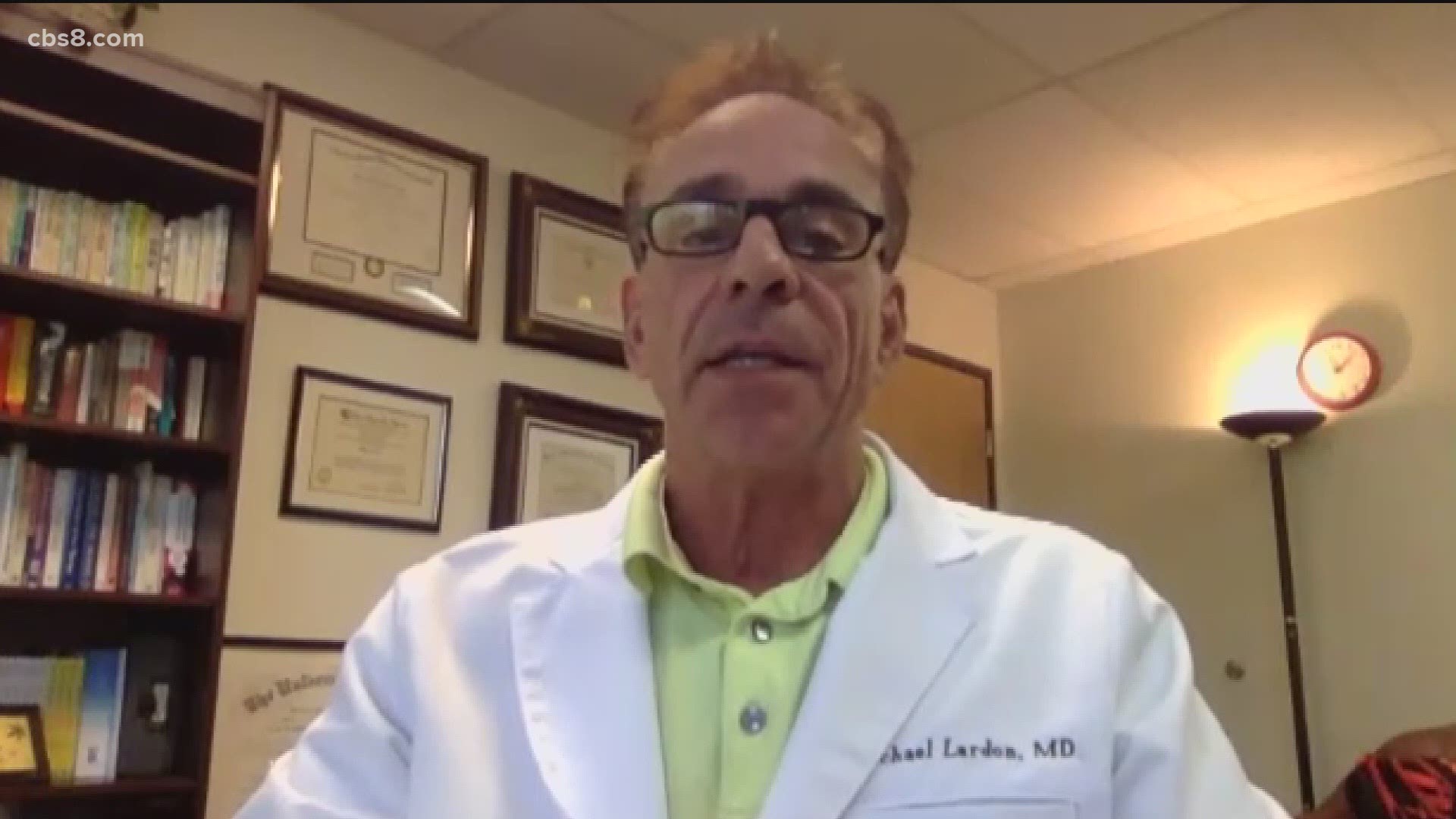SAN DIEGO COUNTY, California — Its been about six months we've all been dealing with this "new normal" - wearing masks, dining outside and coping with the uncertainty of the pandemic. The constant back and forth of changing guidelines and new restrictions can be mentally exhausting.
"There’s a sense of no control," said psychiatrist Dr. Michael Lardon. "So we’re under duress and we have no control and that leads to helplessness and hopelessness."
He said a concept called learned helplessness, being subjected to a repeated stressful situation, is a model for depression.
"You find more people developing depression," he said. "Our practice, and most of my colleagues' practices, are more busy now than they’ve ever been. And the folks in the practice are having a hard time because there’s no medicine we can give you to make the pandemic go away."
However, he said there are some things you can do. Zoom parties, talking on the phone, exercise, and getting outdoors if possible are all ways to help you cope.
"That stuff is actually critical that people do," he said. "Because it’s easy to lie down and give up that just makes the problem worse."
He said small business owners who are waiting on pins and needles constantly worrying about the ever-changing state guidelines and restrictions must accept they have to get creative.
"Unfortunately, it’s an inconvenient reality that this virus is real. It’s a pandemic and we have to deal with it best we can," he said.
"This is the cold reality of life. We go along and make plans, but life happens. So whether it’s an accident on the 805 freeway or something you can’t predict or even a pandemic just like this, you have to understand nothing is for sure in life and it’s really how adaptive you can be under the stress," said Dr. Lardon.
He suggests limiting the amount of time spent on television listening to cable news talk shows discussing the pandemic.
"To repeatedly watch it, you develop a secondary post-traumatic stress disorder," he said. "I think you make it your business to know what’s going on but don’t watch too much of it because that distress feeds into the depression and you feeling isolated and really feeling worse."
He said now is the time to really check in on loved ones -- if you notice changes in them, if they have less energy, they're withdrawn, talk to them.
He said don't be afraid to step in. If you have to, seek professional help by calling 1-800-273-8255 or visiting the National Suicide Prevention Hotline.

